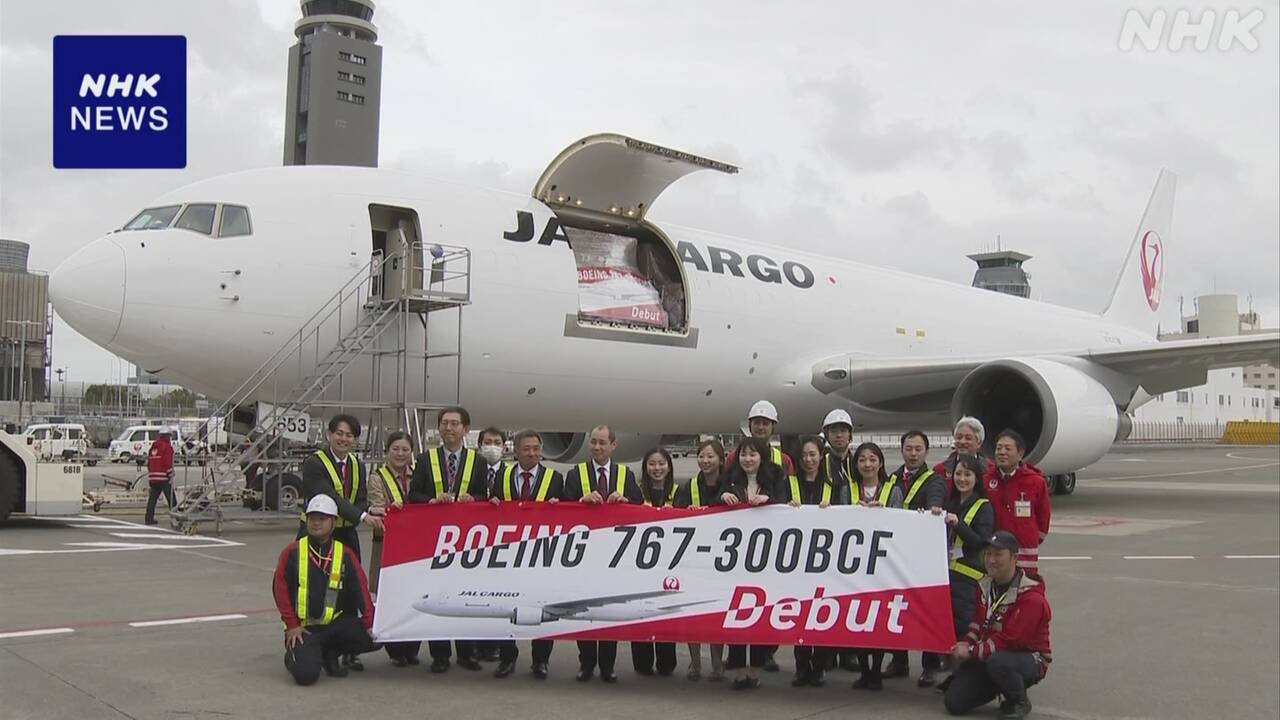Japan Airlines began operating cargo-only aircraft on the 19th for the first time in 14 years since its bankruptcy, in response to the increasing demand for cargo transportation by aircraft since the coronavirus pandemic.
After going bankrupt in 2010, Japan Airlines sold all of its up to 14 international cargo planes in order to downsize its business, and began using space on passenger planes to carry cargo.
On the other hand, during the spread of the new coronavirus, passenger transportation significantly decreased, but sales of cargo transportation increased due to increased use of online shopping due to increased demand from people staying at home.
For this reason, Japan Airlines introduced a new cargo-only aircraft for the first time in 14 years, and began operations on the 19th, with a pre-departure ceremony held at Narita Airport.
During the event, Yuichiro Kifuji, General Manager of Japan Airlines Cargo and Mail Headquarters, gave a speech saying, ``As the JAL Group continues to diversify its business structure, we would like to sustain and develop our cargo business by introducing cargo planes.'' performed the ribbon cutting.
Before departure, the cargo to be transported was loaded onto the aircraft, and some of the cargo was over 2 meters in height and could not be loaded on a passenger plane.
The maximum payload is 48 tons, and the introduction of cargo-only aircraft is expected to increase the types of cargo that can be transported by the company.
The first cargo flight took off for Taiwan around 4 p.m.
A total of three Japan Airlines cargo planes are scheduled to be introduced, and they will operate on routes connecting Narita Airport, which has particularly high demand for online shopping, with destinations such as Seoul, Taipei, and Shanghai.
Collaborate with DHL group companies to secure stable demand
According to Japan Airlines, before its bankruptcy, there was a time when its cargo business was referred to as the "baggage business."
Up until now, the company had been working directly with shippers to secure cargo for transport, but when the economy went into recession, the amount of cargo transported suddenly decreased, making it risky.
In the cargo business, securing stable demand was the biggest challenge. Therefore, this time, we collaborated with a group company of the logistics giant DHL.
By transporting some of DHL's cargo on Japan Airlines' cargo planes, the aim is to secure a base transport volume and stabilize demand.
Furthermore, as part of efforts to strengthen the cargo business, it has been decided that Yamato Holdings, a major delivery company, will be contracted to operate cargo planes starting in April this year, expanding the business in a way that is different from the traditional business model. I am.
On the 19th, a press conference was held jointly with DHL group companies, and Yuichiro Kifuji, General Manager of Japan Air Cargo and Mail Headquarters, said, ``Demand for air cargo will definitely increase.There is competition with other companies, but we We will strive to differentiate ourselves through high-quality services and respond appropriately to increasing demand.The introduction of a cargo-only aircraft is a deep emotion, but we will continue to operate the company with remorse so as not to let go of it.''

